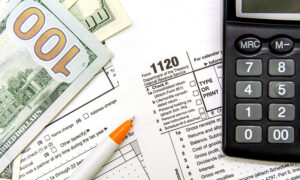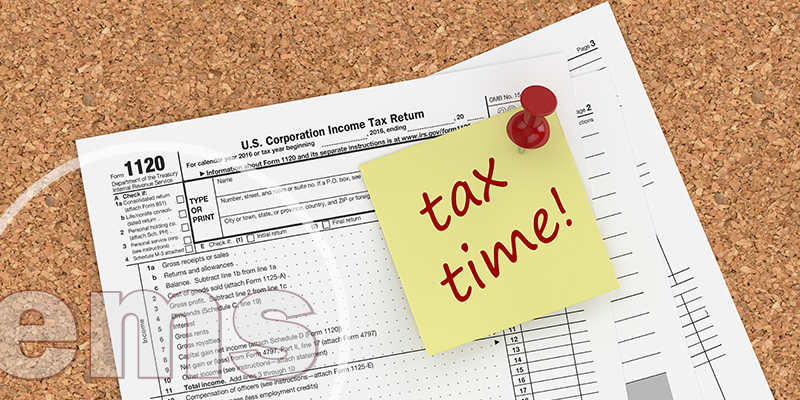HOA taxes are a confusing topic for many community associations. Despite being non-profit organizations, HOAs are still required to pay taxes. How does it all work and are dues tax deductible? Let’s find out.
Do HOAs File With the IRS?
Are HOAs tax exempt or do they need to file their taxes just like other organizations? The short answer is: yes, homeowners associations file taxes with the Internal Revenue Service (IRS). Federal tax laws classify HOAs as corporations. As such, they need to follow corporate rules regarding taxation even as non-profit organizations.
On the other hand, there are ways homeowners associations can file for tax exemption. It requires registering with the IRS as a non-profit and adhering to certain qualifications.
Tax Exemption for HOAs
Homeowners associations can file for state and federal income tax exemption. However, they need to achieve 501(c)(4) or 501(c)(7) status to qualify for federal tax exemption. This process is quite difficult because it is rare for HOAs to attain either status.
As for state income tax exemption, the process will vary depending on your state. Homeowners associations should check their state’s requirements to file for tax exemption. They may also consult local professionals like Certified Public Accountants (CPAs) for further guidance.
How to File HOA Taxes: The Necessary Forms
Filing HOA taxes can be confusing and stressful. However, there are typically two forms most HOAs can file: Form 1120 and Form 1120 H.
Form 1120
 Homeowners associations enjoy a lower tax rate of 15% for the first $50,000 of their net profit when they file Form 1120. However, the form also comes with some downsides. For instance, the form subjects the HOA’s net revenue to taxes. Unused funds at the end of the fiscal period will also be taxed.
Homeowners associations enjoy a lower tax rate of 15% for the first $50,000 of their net profit when they file Form 1120. However, the form also comes with some downsides. For instance, the form subjects the HOA’s net revenue to taxes. Unused funds at the end of the fiscal period will also be taxed.
In addition, filing Form 1120 with the IRS takes a lot of work. It requires more in-depth accounting knowledge and demands more information from the association. For this reason, many communities favor using Form 1120-H when filing their HOA tax return.
Form 1120-H
The most commonly known HOA tax form is Form 1120-H under the IRC Section 528. It is a much easier form to fill out and has its own requirements. However, homeowners associations need to meet specific qualifications before they can use Form 1120-H, such as:
- 85% of homes must be used for residential purposes
- 90% of expenditures must go to HOA maintenance and operations
- 60% of HOA income must come from members (i.e. HOA fees, late charges, interest)
- Yearly residual income cannot be used to benefit the HOA members
Form 1120-H may have strict requirements, but most associations prefer it because of its relative ease. Moreover, it also allows HOAs to exclude exempt function income from their gross revenue.
As a result, the HOA only needs to pay taxes on non-exempt revenue sources like dividends, vending machines, and rental income. Operational expenses such as cleaning and maintenance costs are usually deductible. Hence, it saves the HOA much more money than Form 1120.
State Taxes
Each state may have different requirements regarding HOA taxes. Some states do not require HOAs to file taxes, but others do. Moreover, each state’s form requirements will have varying complexities. It’s important to review your state’s rules and consult a CPA so you don’t forget to file taxes.
What to Do With Excess Income?
Homeowners associations may sometimes have excess income by the end of the fiscal year. In this case, HOAs can avoid or delay paying taxes on said income by rolling over the funds to the following year. However, the governing documents may have specific requirements for rollovers. It usually requires a board vote but some communities may have other conditions.
Rolling over excess income takes advantage of Revenue Ruling 70-604. It considers rollovers as constructive returns of capital to HOA members, allowing the association to avoid taxes. Moreover, it lets HOAs use the leftover income to cover losses if the HOA makes less money than expected.
HOA Taxes Due Date
 When should communities file their homeowner association tax return? Non-profit corporations must file federal tax returns 75 days after the fiscal year ends. Thus, HOAs with fiscal years ending on December 31 need to file their taxes on March 15.
When should communities file their homeowner association tax return? Non-profit corporations must file federal tax returns 75 days after the fiscal year ends. Thus, HOAs with fiscal years ending on December 31 need to file their taxes on March 15.
If the association will file Form 1120-H, they must do so by the fifteenth day of the fourth month when the tax year ends. Again, HOAs with a fiscal year ending on December 31 must pay their taxes by April 15. However, if the HOA’s tax year concludes on June 30, it must be filed on the 15th day of the 3rd month after that year ends. Regardless, the association may file tax returns on the next business day if the due date falls on a legal holiday, Saturday or Sunday.
On the other hand, most homeowners associations require more time to prepare all the necessary documents. They often file for an extension that gives the association 6 more months to file their taxes. If your HOA needs it, consider asking your Certified Public Accountant (CPA) to help you file for an extension.
What Happens if You Miss the Deadline?
Homeowners association taxation can be tricky to get right, so it’s not uncommon for HOAs to miss their deadline. Some might even fail to file taxes for several years. HOAs that miss their deadline may be charged with penalties and interest.
However, it’s never too late to file taxes, even if your community has somehow missed the due date. The most important thing to do is check your last filing date. Afterward, contact the IRS to see whether you can still file Form 1120-H for the years you’ve missed. The board can also ask what they can do to fix the issue if the IRS refuses.
Frequently Asked Questions
What is the IRS resolution for HOA?
The IRS Resolution 70-604 is a revenue ruling that allows HOAs to avoid taxation on excess membership revenue. HOAs can avoid taxes by carrying the excess to the next tax year or refunding the income to members.
Are fees for HOA tax deductible?
HOA assessments are generally not tax-deductible for homeowners who use their property all year round. However, specific fees can become deductible for homeowners who rent out their property throughout the year or for a part of the year. HOA fees are also deductible if the property is used for a business.
Managing Homeowners Association Taxes
HOA taxes are a complicated topic. For this reason, hiring a professional CPA or accounting firm is the wisest thing to do for most homeowners associations. Taxation requires more advanced accounting and financial knowledge, which not all HOA treasurers have.
Does your community need help with financial management and HOA taxes? A professional HOA management company like Elite Management Services can help. Call us today at (855) 238-8488 or reach out to us online to request a proposal!
RELATED ARTICLES:
- Firing HOA Vendors: What’s The Right Way?
- When And How To Change HOA Management Company
- Federal Laws On HOAs: Applying It To Your Community







